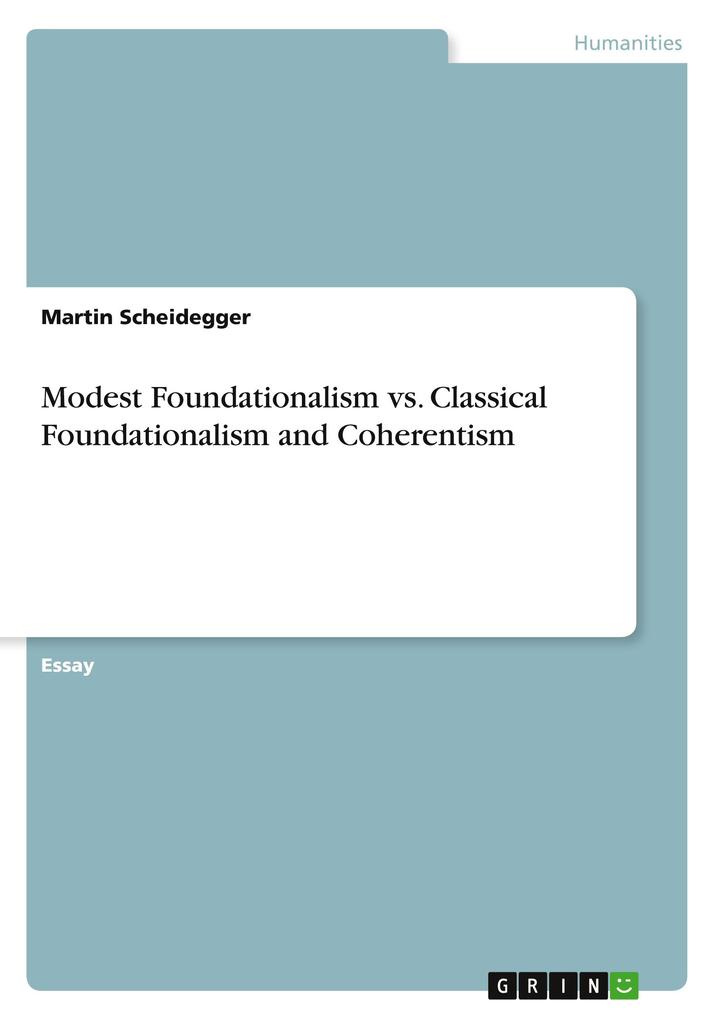
Zustellung: Mi, 27.08. - Sa, 30.08.
Versand in 5 Tagen
VersandkostenfreiBestellen & in Filiale abholen:
Essay from the year 2017 in the subject Philosophy - Theoretical (Realisation, Science, Logic, Language), , language: English, abstract: In this essay, I will present and defend a version of modest foundationalism concerning epistemic justification. In order to defend it I will consider some possible objections coming from the competing positions of classical foundationalism and coherentism. However, as both of these approaches involve serious difficulties, I will counter these objections and show the advantages of modest foundationalism. At the end, it will, hopefully, have become clear that a modest foundationalism is able to integrate also coherentist as well as externalist intuitions to a certain degree, which enables it to be a far more plausible position than any of the extremes.
I have to note an important decision that precedes my critical examination of these opposing theories and my plea for modest foundationalism. This inquiry is based on the meta-epistemological point of view according to which the task of a theory of epistemic justification is a descriptive one, in a sense analogous to the distinction between descriptive and revisionary metaphysics drawn by Peter Strawson in the introduction of his Individuals. Therefore, I take it to be one of the tasks of epistemology to explicate the standards underlying our ordinary use of the word justified . This preliminary decision concerning the goal and method of epistemology determines the evaluation both of classical foundationalism and coherentism in the following discussion.
I have to note an important decision that precedes my critical examination of these opposing theories and my plea for modest foundationalism. This inquiry is based on the meta-epistemological point of view according to which the task of a theory of epistemic justification is a descriptive one, in a sense analogous to the distinction between descriptive and revisionary metaphysics drawn by Peter Strawson in the introduction of his Individuals. Therefore, I take it to be one of the tasks of epistemology to explicate the standards underlying our ordinary use of the word justified . This preliminary decision concerning the goal and method of epistemology determines the evaluation both of classical foundationalism and coherentism in the following discussion.
Produktdetails
Erscheinungsdatum
19. Dezember 2017
Sprache
englisch
Untertitel
1. Auflage.
Sprache: Englisch.
Auflage
1. Auflage
Seitenanzahl
16
Autor/Autorin
Martin Scheidegger
Verlag/Hersteller
Produktart
kartoniert
Gewicht
40 g
Größe (L/B/H)
210/148/2 mm
ISBN
9783668585553
Entdecken Sie mehr
Bewertungen
0 Bewertungen
Es wurden noch keine Bewertungen abgegeben. Schreiben Sie die erste Bewertung zu "Modest Foundationalism vs. Classical Foundationalism and Coherentism" und helfen Sie damit anderen bei der Kaufentscheidung.









